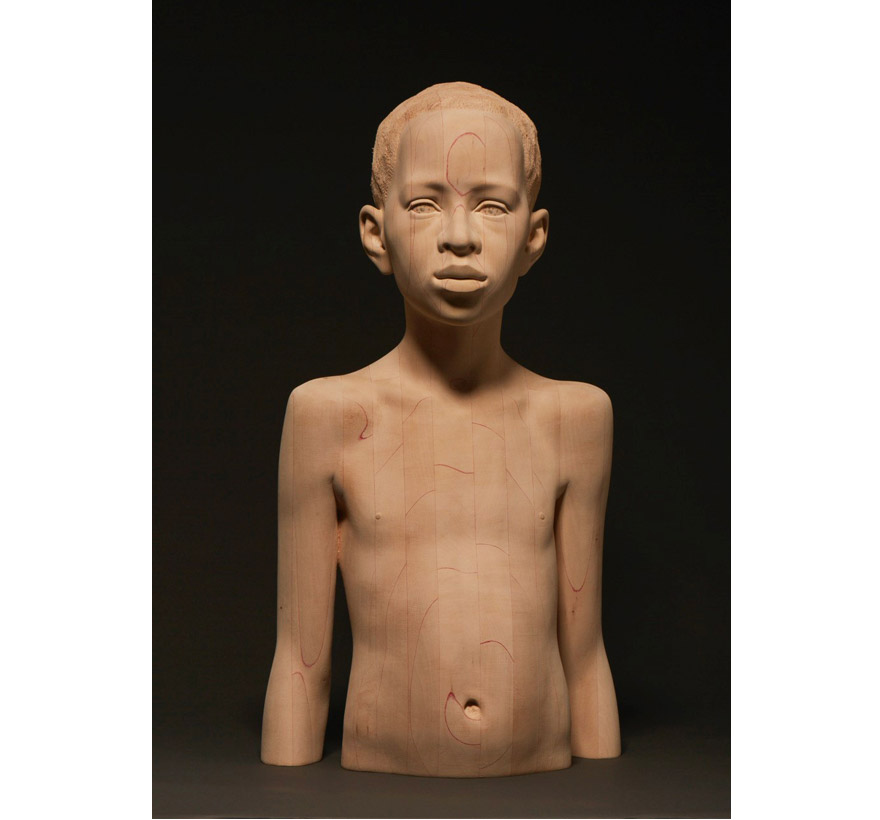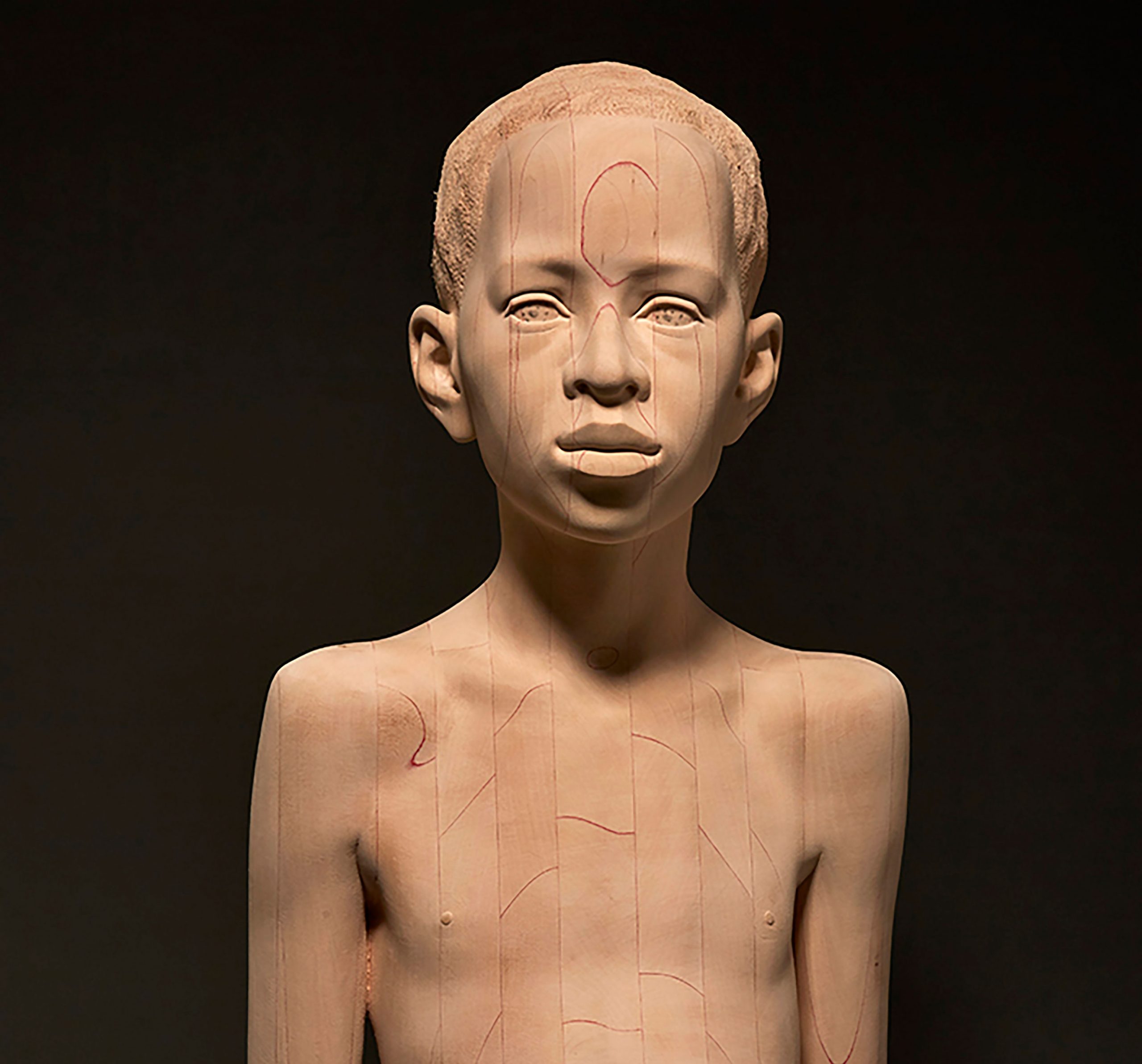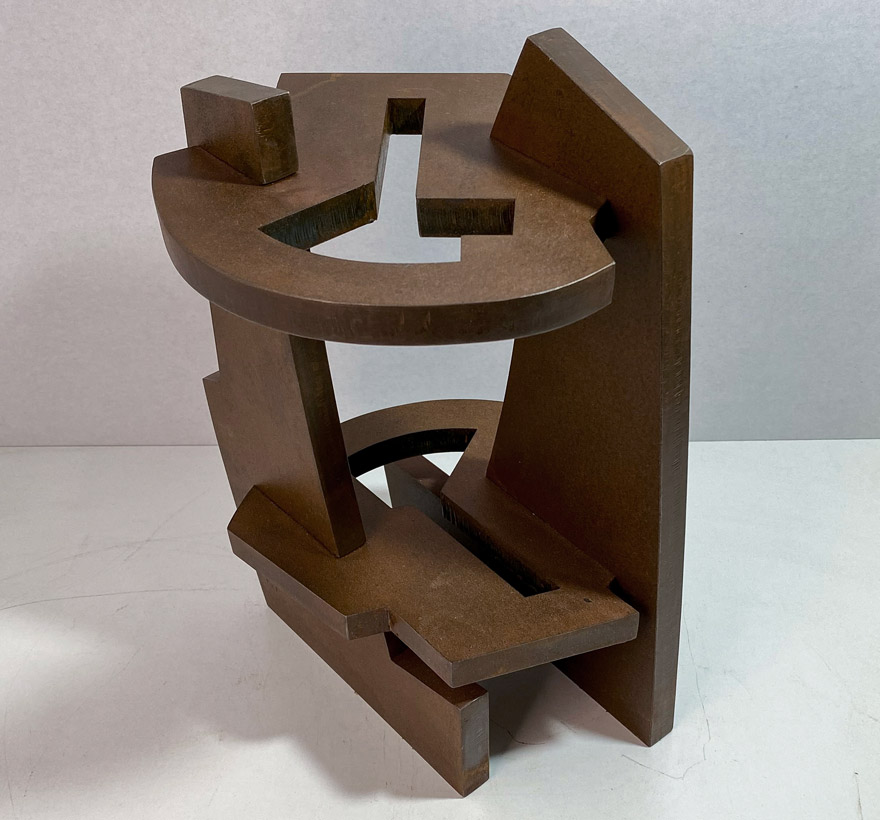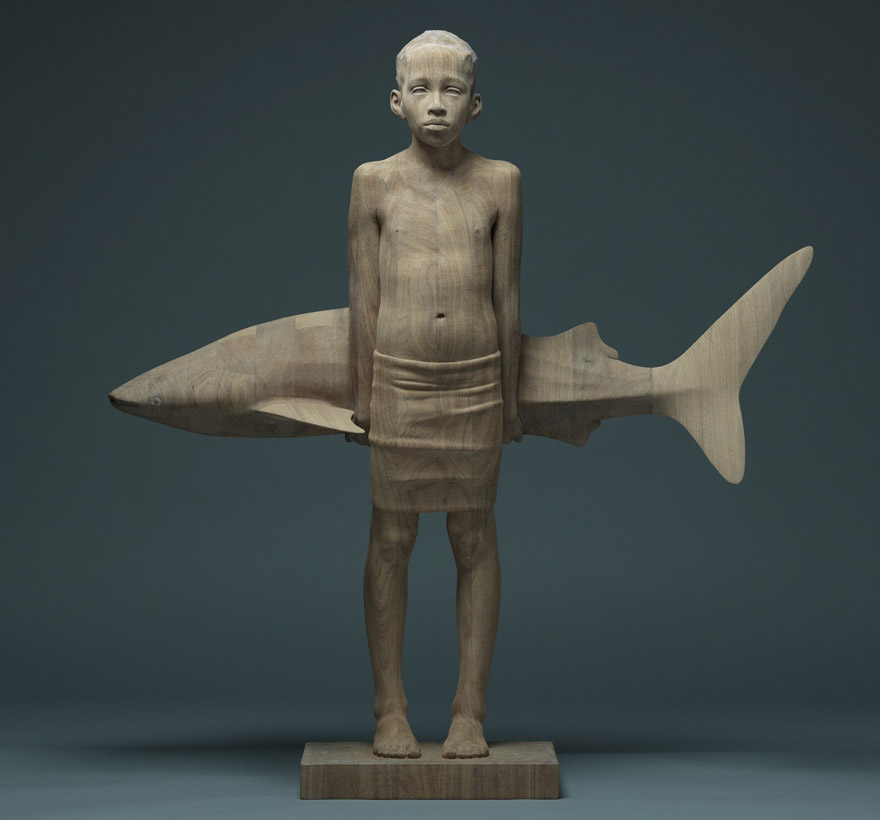The ability to give expression to the human form, to convey and translate its language is a skill, which sculptor Mario Dilitz definitely has. He combines traditional sculptural knowledge and technical skills with topical issues and in this way manages to create sculptures of great intensity and appeal. His sculpture 176 (2019) is a clear example of this.
His work is polarizing. There is a contrast between the aesthetic beauty of his sculptures and the content of the themes, in a profound confrontation with the vagaries of human existence.
On the one hand Mario Dilitz manifests the contradictions that occur in human nature, and on the other hand he knows how to unite them in his work. Even his choice of material reveals these contradictions.
His sculptures, most of them life-size, are created in high quality laminated wood. After a process of destruction and then construction the wood has reached a new form of stability, which would not be possible in its natural condition.
This process is made visible by the glue joints in the plywood. Mario Dilitz chooses red glue to sign his creations.
In short, his is a practice that places the human figure at the center of his work, endowing each work with detail and great intensity.
His sculptures, most of them life-size, are placed on the same physical plane as the spectator, in an eternal wait for a dialogue to begin.







